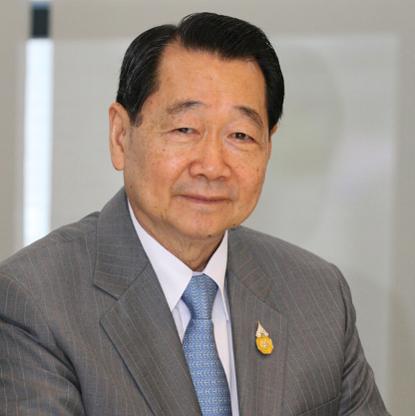FB roundup: Bombardier, Charoen Pokphand, and Volkswagen

Bombardier to cut 5000 jobs in restructuring
Canadian aerospace giant Bombardier is to cut 5,000 jobs as part of an effort to streamline operations and reduce costs.
Bombardier said the 7% reduction of its workforce over the next 12 to 18 months will save the company about $250 million a year by 2021, with the job cuts mostly coming from the company’s engineering and management ranks.
The Montreal-based group also announced the sale of “non-core assets” totalling about $900 million, including the Q Series medium-range turboprop aircraft programme and the de Havilland trademark, which was sold for some $300 million to a Canadian investment fund.
The announcements came as the company unveiled a net income of $167 million in the third quarter, compared with a loss of $11 million a year earlier.
“We continue to make solid progress executing our turnaround plan,” said Alain Bellemare (pictured), Bombardier chief executive.
“With today’s announcements, we have set in motion in the next round of actions necessary to unleash the full potential of the Bombardier portfolio.”
Third-generation Pierre Beaudoin, Bombardier's former chief executive, stepped down as its executive chairman in May 2017. Joseph-Armand Bombardier founded the plane and train manufacturer in 1942. Bombardier reported annual revenues of $16.2 billion in 2017.
 Thailand conglomerate Charoen Pokphand Group bids for rail project
Thailand conglomerate Charoen Pokphand Group bids for rail project
Billionaire Dhanin Cheraravanont’s Charoen Pokphand Group is teaming up with 12 companies from Asia and Europe to bid for a high-speed rail link connecting three international airports in Thailand.
The high-speed rail project is worth $6.8 billion and will connect Don Mueang International and Suvarnabhumi International airports in Bangkok with U-Tapao located in the eastern province of Rayong.
The project is part of the Thai government’s larger transport infrastructure investment action plan covering rail, roads, airports and sea-ports.
The second-generation Charoen Pokphand Group is one of the world’s largest producers of animal feed and livestock and controlled by the Chearavanont family, Asia’s fourth-richest family worth $36.6 billion as of 2017, according to Forbes.
The group is led by Dhanin Cheravanont (pictured), who is senior chairman, with youngest son Suphachai as chief executive and elder son as group chairman.
The consortium headed by Charoen Pokphand Holding includes China Railway Construction as well as China’s CITIC Group, CRRC Sifang and China Resources Co, Germany’s Siemens, South Korea’s Hyundai, Bangkok Expressway and Metro, Italian-Thai Development PCL, Thailand’s CH Karnchang, Japan Overseas Infrastructure Investment Corp for Transport and Urban Development, Italy’s Ferrovie dello Stato Italiane and Japan Bank for International Cooperation.
The State Railway of Thailand will evaluate the bids and is expected to reveal the winning firm by January 2019.
 Volkswagen in talks with Ford to invest in self-driving unit Argo
Volkswagen in talks with Ford to invest in self-driving unit Argo
Volkswagen and Ford are nearing a “framework agreement” to partner on electric and self-driving cars, according to Bloomberg, in a deal which could see the German automaker compete with the likes of General Motor’s Cruise and Tesla.
People familiar with the negotiations told Bloomberg Volkswagen is considering an investment into Argo AI, the self-driving unit acquired by Ford in 2017 for $1 billion, and sharing its electric-vehicle technology with Ford.
Sherif Marakby (pictured), chief executive of Ford Autonomous Vehicles, told the Financial Times collaborating with other regions to expand self-driving services “totally makes a lot of sense”.
“Joint investment with people who can complement each other makes perfect sense,” Marakby said.
“The autonomous vehicle development and business costs billions and billions of dollars in one region, so when trying to deploy this across multiple regions, it totally makes a lot of sense to be joining in on the risk and the reward.”
Self-driving cars are expected to disrupt the auto industry and become a business worth $7 trillion by mid-century, according to a report last year by Intel Corp and Strategy Analytics.






